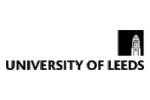VNU-Central Institute for Natural Resources and Environmental Studies (VNU-CRES) is a public scientific and technological organization under Vietnam National University, Hanoi (VNU), established in accordance with Decision No. 2218 / QĐ-TTg dated November 17, 2016 by the Prime Minister of the Socialist Republic of Viet Nam. For today’s position, VNU-CRES has experienced a long tradition of building and development throughout 34 years (1985-2019), with critical milestones: (i) Centre for Natural Resources and Environment under University of Hanoi (1985-1995); and (ii) Centre for Natural Resources and Environment Studies under Vietnam National University, Hanoi (1995-2016). Heretofore, VNU-CRES has established a prestigious national and international brand in scientific research, technological applications, postgraduate training and consulting about policy formulation on biodiversity conservation, rational management and utilization of natural resources, environmental protection, climate change and sustainable development.
With the spirit of “INNOVATION – CREATIVITY – SUSTAINABLE DEVELOPMENT”, VNU-CRES strives to become a leading scientific organization across the region and the world in deploying research, technological application and interdisciplinary post-graduate teaching. We also seek to be the focal point for scientific and technological human resources domestically and internationally to solve the country’s major issues surrounding biodiversity conservation, natural resources and climate change, thus serving the country’s socio-economic development from a sustainable perspective.
In a knowledge-based economy that is developing in the direction of industrial revolution 4.0, the team of scientists at VNU-CRES is always proactive in innovating and pioneering interdisciplinary approaches, including: socio-ecological systems and human ecology approaches, an ecosystem-based approach, a co-management and benefit sharing approach, and sustainable development approach. These approaches are employed to benefit scientific research, technological application, policy formulation on biodiversity conservation, rational utilization and management of natural resources, environmental protection and resilience to climate change. In the future, VNU-CRES aims to focus on the following main research directions:
1) Conservation of biodiversity, conservation and development of medicinal plants;
2) Rational utilization and management of natural resources and environmental protection;
3) Research on sustainable development and climate change;
4) Research, development and application of environmental technologies;
5) Research, development and application of indigenous knowledge, human ecology and socio-ecological systems in biodiversity conservation, rational use of natural resources, environmental protection, resilience to climate change and sustainable development.
6) Application of modern technology (Remote sensing, GIS, modeling, molecular biology, etc.) in the study of natural resources, environment, biodiversity conservation and climate change.
7) Providing consultations on the drafting of legislation, regulation and policy formulation; and services on biodiversity conservation and rational use of natural resources; climate change; sustainable development; environmental analysis and monitoring; development of environmental action plan and planning; environmental impact assessment (EIA); and strategic environmental and social assessment (SESA), among other with interdisciplinary approaches in multidisciplinary aspects that satisfy practical requirements and social needs.
With a network of over 600 postgraduates, masters and PhD students, VNU-CRES continues to affirm that it is the centre for high-quality human resource training in science and technology for ministries, localities, non-governmental organizations (NGOs) and enterprises.
VNU-CRES deeply believes that, with the attention of the Party, State, and VNU, in addition to the dedicated cooperation of ministries, localities, NGOs and enterprises, research institutes, universities, and a network of domestic and foreign scientists, VNU-CRES will be able to grow and contribute practically to the industrialization and modernization, sustainable socio-economic development and national security and defense.
Director General
Assoc. Prof. Dr. Luu The Anh













